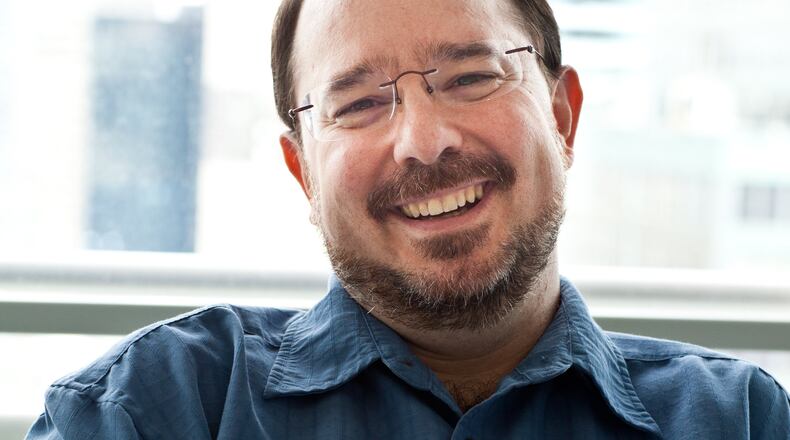CORONARIVUS: Complete coverage from the Dayton Daily News
“The choices we are making right now, today, on the national, state and local levels are going to have repercussions about how long we have to be dealing with this sort of stuff, and who lives and who dies,” he said. “And in the longer term, the decisions we make now will have consequences for how the next five or 10 years go.”
In Scalzi’s book, the virus causes paralysis for the afflicted. And there are robots, and technology that allows people to trade bodies. It’s fiction. The coronavirus, by contrast, is frighteningly real.
But our current situation feels, for many, like a dystopian book or movie. So the Dayton Daily News asked Scalzi to play the part of a futurist and consider how this historical moment might reshape society.
RELATED: A Q&A with sci-fi author John Scalzi
“What I think is eventually going to happen is, and what I have happen in the books is, at the end of it all when the infection rates drop and people start coming out of their homes, we’re going to find there is a new normal that is not exactly 100 percent like it was before but is something that everybody can go: ‘OK, we can get on with our lives.’”
In a Washington Post piece, Scalzi wrote about being on a cruise ship full of sci-fi geeks when the virus started spreading and wondering with fellow passengers if handshakes would be forever replaced with elbow bumps, the Vulcan greeting or Wakanda salute.
“In the end, though, I suspect a simple wave ‘hello’ will do the trick: an acknowledgment and a sign of potential friendship and an understanding that sometimes a little distance is kind, not rude,” he wrote.
In the interview with the Dayton Daily News, Scalzi wondered how long it would be before people would feel comfortable cramming into concert halls, bars or science-fiction conventions. Will shared experiences change?
“How do we do social things?” he said. “Any place there’s a high density of people, it then becomes the issue of do I really want to be here especially because in the next couple of years at least there is always a chance of a new flare-up.”
CORONAVIRUS: What we are scared — and hopeful — about right now
“That is going to be something in the immediate term that is going to reshape how we do thing socially, and the longer term may have an implication for what it means to own a restaurant, what it means to do a concert.”
This could change how musicians who rely heavily on touring are paid, or massive Hollywood blockbusters that depend on packed theaters to profit off quarter-billion dollar investments. Will the entertainment economy no longer support Captain America?
But the largest, most meaningful impact Scalzi anticipates is our society taking a hard look at how we structure health care and weigh it against other parts of society. In his book, the government responded to the pandemic with a stimulus package that gave health care to all the people infected.
In the real world today, he said, uncertainty surrounds not only those with coronavirus but the millions who are losing their jobs and therefore their employer-provided health insurance.
“I do expect that the longer-term things will be things that don’t feel like science fiction at all, but things like recognizing that the systems we had in place before were not community-oriented enough,” he said. “That is going to be a long-term discussion we have, and how that all sorts out I have absolutely no idea but I am sure we are going to have that discussion.”
About the Author

